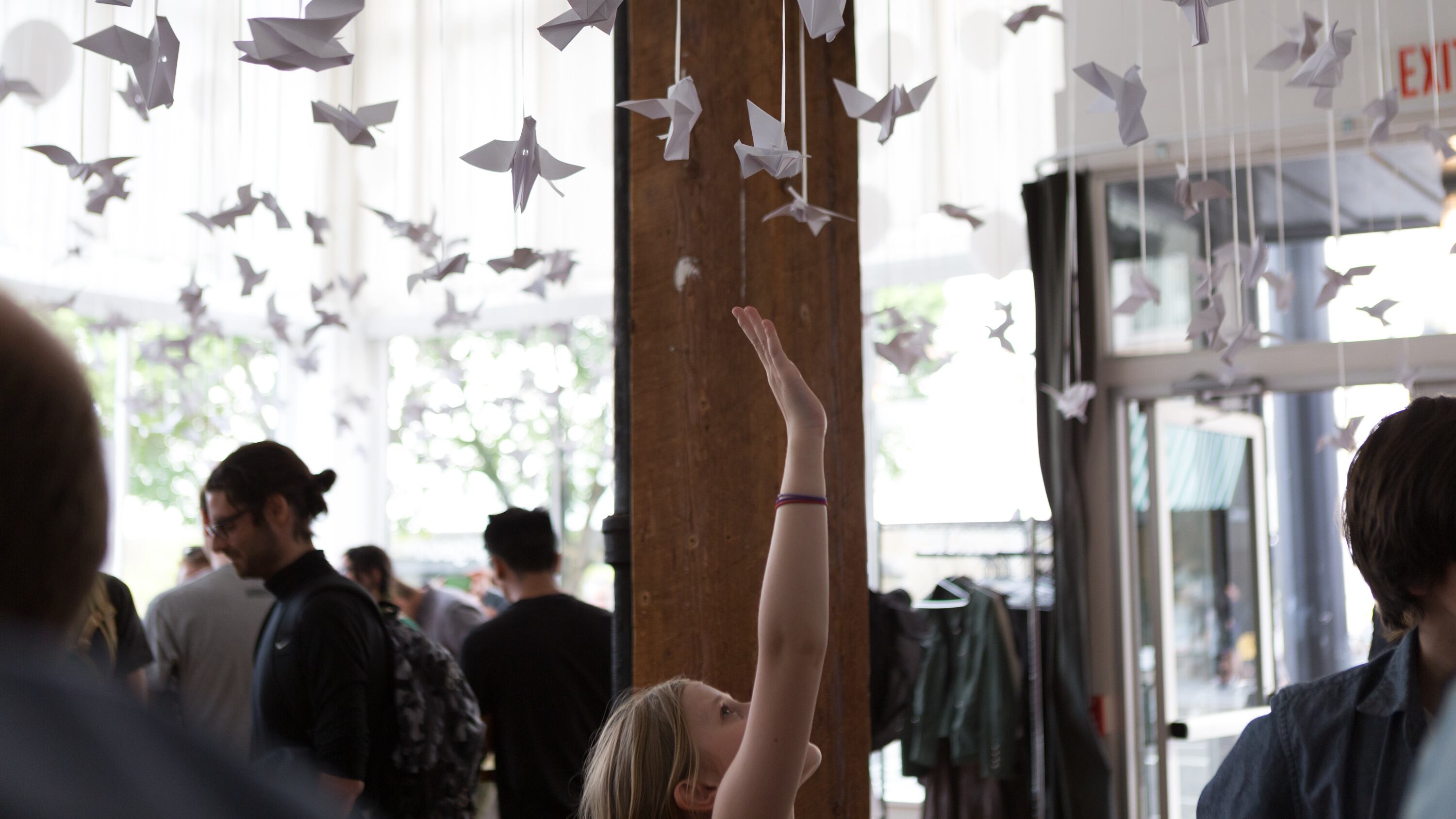Joining other beloved Portland festivals—Bridgetown Comedy Festival and Linework NW, to name a few—Design Week Portland (DWP) announced last week that it will not hold a festival in 2022. The festival’s near decade of citywide, sprawling events, aimed at celebrating and supercharging the city’s creative minds, has come to an end.
It’s not that you won’t find yourself in a semi-industrial loft where a vodka sponsor is hanging out cocktails while skaters do tricks over your head on an elevated half pipe anymore. You’ll just be there for other reasons. Portland’s creative community will now need to assume some other shape.
“We’re closing the book,” a statement on the festival’s site read. “And, in doing so, we’re celebrating the eight years that we gathered and created. Learned and grew. Formed new relationships and imagined what could be. The time has come for new voices, new stories. But, first, let’s celebrate.”
The raucous week of creative mornings, studio visits, installations, fashion shows and a clockwork annual renewal of your own pledge to finally become proficient in letterpress didn’t so much put Portland on the design world map as it simply celebrated the fact that Portland is a lynchpin of design and creative thought.
“It was a privilege to do so much with so many incredible people,” Design Week co-founder Tsilli Pines told WW. “There was a magic to how all of it came together, a coalescence that made the sum greater than its parts. Endeavors like this take a lot to stand up and sustain, however, and we were always doing it in addition to other things. This was a love thing.”
Indeed, DWP was nearly one hundred percent volunteer-run and most of those volunteers—being a part of the design world—were typically employed in demanding, high-pressure jobs. The fact that DWP embraced that chaotic energy and pulled off the weeklong festival year after year gives context to the its close.
“We didn’t see capacity from within for a succession plan, and we didn’t want to pass the project off to folks who weren’t embedded. And so we decided that the best thing we could do was to honor what we’d accomplished, document it as best we could, and leave hanging wires for the next generation to make something new. There are seasons to things,” Pines said.
“I know my students are disappointed,” said Kate Bingaman-Burt, Associate Director of Portland State University’s School of Art + Design—and, full disclosure, one of my former teachers. Bingaman-Burt was a force behind the festival, known for sending her students out throughout the week like scavengers on the hunt for inspiration, connections and new skills.
“I told them in class the other day that they should make the Design Portland that they want to see in the world!” she said. “We have a ton of resources and infrastructure and enthusiasm to share if someone does want to pick up the torch.”
